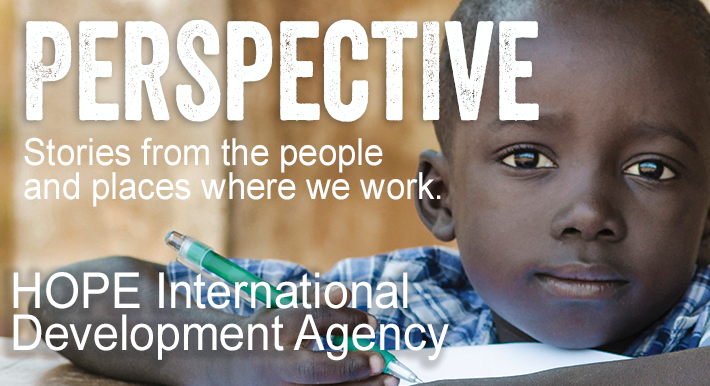 |
| Daw, a hygiene promotor, shares health information with a group of women and children. |
Health and hygiene can become a serious issue in crowded camps for internally displaced people (IDP).
Metta, HOPE International Development Agency’s partner in Myanmar, has adopted a peer-trainer approach to promote hygiene within the camps. The peer trainers, most of whom are women, are trained in reproductive health, HIV/AIDs prevention, health care, nutrition, personal hygiene, waste management, prevention of waterborne diseases, and environmental protection. Once trained, these peer trainers – known as “hygiene promoters” - both model and teach good hygiene practices to their fellow camp residents through information sessions, distribution of posters about health and hygiene, door-to-door visits, and facilitating regular camp cleaning days.
One such hygiene promoter is Daw, a 35-year-old woman who fled her home village with nine family members and currently lives in an IDP camp in northern Myanmar.
With a grade 10 education and an interest in business, Daw was an excellent candidate to become a hygiene promoter. With HOPE’s support, she participated in the training for hygiene promoters last year and has since been modeling and teaching good hygiene practices in her camp.
“At first I did not have the confidence to conduct hygiene awareness activities,” says Daw. “However, I have learned the importance of maintaining good health, the benefits of personal hygiene, and much more knowledge about health through the experience of serving as a hygiene promoter.”
With time, Daw gained confidence and became a respected member of the camp community because of her role as a hygiene promoter.
“Now I know how to plan hygiene activities, find out the needs of the camp, and conduct hygiene awareness sessions. As I gain trust from others, my confidence grows. I now realize that I have to observe what is going on in the camp environment to be a good hygiene promoter. I am very proud to be one of the hygiene promoters, as we play an important role,” says Daw.
Daw and her fellow hygiene promoters are making a positive difference, not only in their own lives, but equally importantly, in the lives of others.

